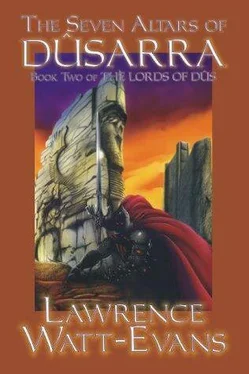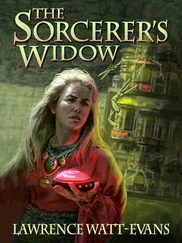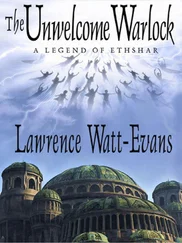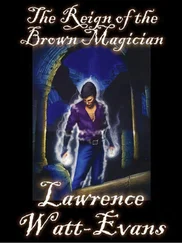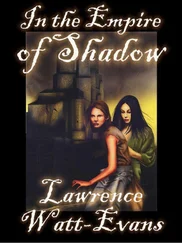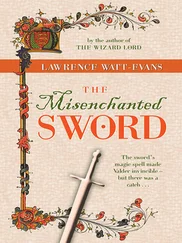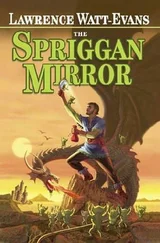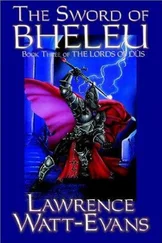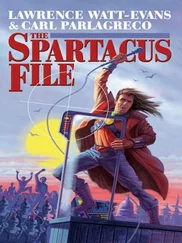Lawrence Watt-Evans - The Seven Altars of Dusarra
Здесь есть возможность читать онлайн «Lawrence Watt-Evans - The Seven Altars of Dusarra» весь текст электронной книги совершенно бесплатно (целиком полную версию без сокращений). В некоторых случаях можно слушать аудио, скачать через торрент в формате fb2 и присутствует краткое содержание. Жанр: Фэнтези, на английском языке. Описание произведения, (предисловие) а так же отзывы посетителей доступны на портале библиотеки ЛибКат.
- Название:The Seven Altars of Dusarra
- Автор:
- Жанр:
- Год:неизвестен
- ISBN:нет данных
- Рейтинг книги:3 / 5. Голосов: 1
-
Избранное:Добавить в избранное
- Отзывы:
-
Ваша оценка:
- 60
- 1
- 2
- 3
- 4
- 5
The Seven Altars of Dusarra: краткое содержание, описание и аннотация
Предлагаем к чтению аннотацию, описание, краткое содержание или предисловие (зависит от того, что написал сам автор книги «The Seven Altars of Dusarra»). Если вы не нашли необходимую информацию о книге — напишите в комментариях, мы постараемся отыскать её.
The Seven Altars of Dusarra — читать онлайн бесплатно полную книгу (весь текст) целиком
Ниже представлен текст книги, разбитый по страницам. Система сохранения места последней прочитанной страницы, позволяет с удобством читать онлайн бесплатно книгу «The Seven Altars of Dusarra», без необходимости каждый раз заново искать на чём Вы остановились. Поставьте закладку, и сможете в любой момент перейти на страницу, на которой закончили чтение.
Интервал:
Закладка:
"That disease-have you ever seen it before?"
"No, but I have heard of it. It is the White Death, which P'hul uses to dispose of those who have displeased her. She must favor you, as her priest said."
A few days earlier Garth would have dismissed that as more human superstition; now, he was less certain. The events of the last few days and nights definitely seemed to have involved powers beyond any he was familiar with. He slid the sword of Bheleu into the place in the harness it had occupied before, wishing he had some other more convenient and more trustworthy weapon.
"It may be," he said, "that the Forgotten King will have no use for you. In that case, you shall be free to go as you please; you may return to Dыsarra and to your family if you choose. I make no promises, however."
"I may just escape before that." Her tone had lightened.
"I hope to prevent that. Recall that you are unarmed and half clad, and that the city is a most unhealthy place just now."
"Oh, don't worry, silly." She petted Koros, who was licking blood from its claws.
Garth smiled. No one had ever called him silly before. At least, not for a century or so.
A blaze of red light lit the sky; Garth and Frima turned to see that one of the volcanic peaks was brightly aglow. A moment later the now-familiar rumbling shook the slope beneath their feet.
"I think it would be wise to depart," Garth remarked. He lifted the girl onto the warbeast's back, then swung himself up in front of her. He was weary and would have preferred to sleep, but it seemed quite clear that he would not be safe anywhere near the city.
When both were astride, Koros started forward in its customary swift glide…apparently unbothered by its recent exertions. As Dыsarra and the fiery volcano receded behind them, Garth contemplated recent events.
His life-long atheism he now suspected to be incorrect; there was something that had directed his actions since his acquisition of the sword of Bheleu. No other explanation was adequate. Whether it was in fact the god of destruction he did not know, nor did he understand the relationship between this power, himself, and the sword. Whatever it was, it had gained him powerful allies in the cult of P'hul, and it might therefore have made him enemies as well-something he would have to be watchful for henceforth. The enmity of the cult of Aghad he had earned himself, and it was plain that the cult had power in lands besides its own; that, too, he must be watchful for.
The sword itself he did not trust; were it not his only weapon, he would have sworn never to touch it again. As it was, he was eager to deliver it to the Forgotten King and be done with it.
The Forgotten King-there was another matter for consideration. The old man was the high priest of death; it was not desirable, therefore, to serve him any further. Garth would deliver the loot from the various altars to him and then go his own way.
The vague promises of fame, of possible immortality, and of some great cosmic significance were, at present, of little interest; his recent dealings with cosmic powers had left him far less enthusiastic about such matters. There were mundane matters enough to occupy his time. There was the possibility of trade with the overmen of the Yprian Coast, should they actually exist; there might well be repercussions from the events just past to be dealt with; there was his vengeance to be taken upon the Baron of Skelleth. Trade or no, he was determined to have his revenge.
He rode on through the night, Frima hanging on forlornly behind him as she left the only home she had ever known, Koros padding smoothly along. His mind seethed with schemes to humble the Baron, with schemes to seek out and destroy the cult of Aghad, with thoughts of great deeds to be done. None of the three noticed the great red gem set in the pommel of the sword oЂ Bheleu, protruding from the warbeast's harness alongside its furry chest, where it burned with a murky flame the color of blood.
NOTES ON LANGUAGE AND PRONUNCIATION
The reader should remember throughout that the characters do not speak English, but a language which, if pressed for a name, they would call "Eramman." All dialogue must be considered as translations from the Eramman, and all names as approximate transcriptions. An attempt has been made to keep all names as easily pronounceable for speakers of English as possible; since Eramman is an IndoEuropean tongue, reasonable accuracy is possible as well.
However, a rough guide to pronunciation seems advisable.
Accents: There are two different rules to be followed in regard to where stress falls; in Nekutta (including Dыsarra), Orgыl, Amag, Tadumuri, Mara, and almost all of Eramma, the accent always falls on the next-to-last syllable in any word, regardless of how many syllables there may be. In Orыn, the Northern Waste, the Yprian Coast, and in personal names but no other words in parts of northern Eramma (including Skelleth), the accent always falls on the first syllable, regardless of the length of the word. Thus Garth, being from the Northern Waste, pronounces the name of his home city OR-duh-nin, while the people of Skelleth or Dыsarra would pronounce it Or-DOO-nin.
The Plain of Derbarok, lying as it does between Eramma and Orыn, has no set rule; its inhabitants vary their pronunciation at whim, and there is no consensus as to whether the correct pronunciation is DER-ba-rock or Der-BAR-ock.
Phonetics: The Eramman language has seven basic vowels, which are represented in transcription by A, E, I, Y, O, U, and Ь; most have two pronunciations, depending on whether they occur in an accented syllable or an unaccented one.
A is always pronounced like the a in era.
E in an unaccented syllable is pronounced like the e in get.
E in an accented syllable is pronounced like the й in passй.
I in an unaccented syllable is pronounced like the i in bit.
I in an accented syllable is pronounced like the ee in bee.
Y is a sound which does not occur in English; regardless of accent it is pronounced like the Russian bI; best approximated as something between the accented and unaccented I.
O is always pronounced like the o in got; there is no long O in Eramman.
U in an unaccented syllable is pronounced like the oo in book.
U in an accented syllable is pronounced like the oo in boot.
Ь in an unaccented syllable is pronounced as in German; in an accented syllable it falls somewhere between the German ь and o.
The use of a circumflex indicates that a vowel in an unaccented syllable is pronounced as if accented (e.g., Orыn and Dыsarra, pronounced OR-oon and Doo-SAR-ra). One-syllable words are always considered accented, but a circumflex may sometimes appear as a reminder.
Diphthongs are common in Eramman, especially AI, pronounced like the English word "I," and EU, which does not occur in most forms of English, but closely resembles the Cockney pronunciation of the long O-sound.
Consonants are pronounced much as in English, except R, which is trilled or "flipped" slightly (not rolled). The following combinations should be noted: TH is always as in thin, never as in there.
DH represents the voiced th as in there.
BH represents a sound somewhere between b and v, as in the Castilian Spanish pronunciation of either.
PH represents a sound somewhere between p and f; in the combination P'H the apostrophe has no sound or value whatsoever except to indicate that the P and H are both pronounced individually and not as a single phoneme. P'hul is one syllable.
CH is pronounced as in church.
J is pronounced as in jar.
G is always as in get, never as in gem.
KH represents a voiceless gutteral, like the German ch in ach.
GH represents a voiced gutteral; it sounds rather like gargling.
Читать дальшеИнтервал:
Закладка:
Похожие книги на «The Seven Altars of Dusarra»
Представляем Вашему вниманию похожие книги на «The Seven Altars of Dusarra» списком для выбора. Мы отобрали схожую по названию и смыслу литературу в надежде предоставить читателям больше вариантов отыскать новые, интересные, ещё непрочитанные произведения.
Обсуждение, отзывы о книге «The Seven Altars of Dusarra» и просто собственные мнения читателей. Оставьте ваши комментарии, напишите, что Вы думаете о произведении, его смысле или главных героях. Укажите что конкретно понравилось, а что нет, и почему Вы так считаете.
